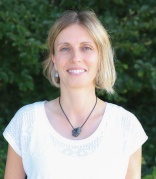Home › magazine › european reports › Dutch government policy affects cleaning sector
Dutch government policy affects cleaning sector
23rd of September 2015The Dutch government has decided to insource a number of facilities services, reports Nico Lemmens.
The Dutch government has decided to insource a number of facility services, among which catering and cleaning. This remarkable policy has been proposed by the socialist government party. As explained in earlier editions, this policy is aimed at creating jobs for lower wage scales.
However it conflicts with the cabinet’s own policy of reducing the size and increasing the flexibility of the government machine. The Dutch cleaning research association VSR has been approached to assist in creating a government cleaning organisation.
In 2015 this association will introduce a quality mark. Some 35 years ago the association introduced a measuring system under its own name: the VSR Quality Measuring System. This system is scientifically (statistically) well founded. Inspectors are trained and certified in its correct application. However more and more ‘amateurs’ claim to be able to apply the system correctly, which, in many cases, is not true.
To discourage this undesirable development, VSR decided to develop a quality mark. This quality mark is designed not for individuals, but for organisations that use VSR QMS. The quality mark is based on a standard developed by VSR. To obtain the quality mark, an organisation will be audited by an independent auditor. The maintenance of the quality mark system has been delegated to Stichting Schoonmaak Kwaliteit (Foundation for Cleaning Quality).
Apart from these ‘policy matters’, there are some very hot topics concerning methods and cleaning techniques such as robotisation, bacterial or microbiological cleaning techniques, and nanotechnology.
As far as nanotechnology is concerned, there sometimes seems to be something of a ‘nano hype’. Some manufacturers of nano coatings and of products containing nano materials claim to have products and methods with fantastic properties in terms of self cleaning effects, efficiency and safety. On closer analysis many of these claims prove to be false. This is not the only topic of interest for an independent research organisation like VSR.
Another interesting subject is bacterial or microbiological cleaning, using so-called probiotics. Here we also have manufacturers that sometimes produce claims which prove not to be resistant against critical analysis. Some of these claims need to be qualified (‘bacterial cleansers break down biofilms’ or ‘bacterial cleansers break down allergens’) while others are downright incorrect (‘bacterial cleansers break down ultra fine dust’).
And there is yet another topical issue: robotisation of cleaning activities. Now, robotisation is a subject that is of great interest to many sectors and activities, not only as far as technological aspects in the narrow sense are concerned. The Dutch government for instance is interested in employment effects of technological development in general and of robotisation in particular. VSR will collect information on the subject from a great many different sources to filter those items that are of relevance to the cleaning industry.
All in all there is one reassurance: in the near future VSR will not be out of a job.









